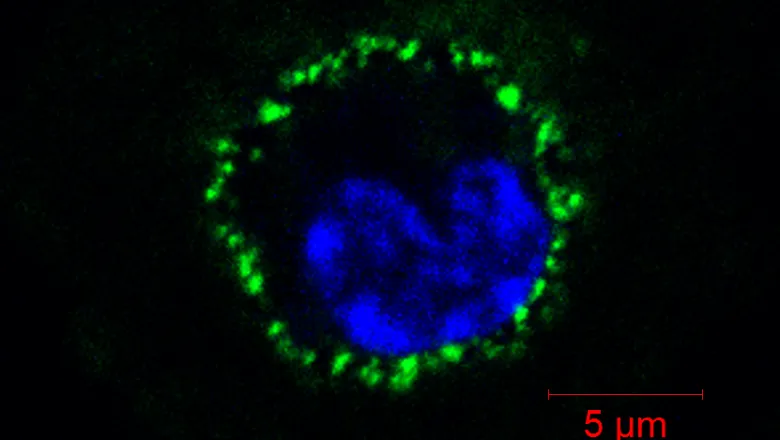Cancer cells need cholesterol to proliferate and grow. This study shows how cancer cells can extract this cholesterol from immune cells in the tumour, this has the added effect of blocking the immune function of these cells. So, if we can block this process, we remove a source of nutrition for cancer cells and help activate immune cells in tumours – that’s a double whammy for anti-cancer therapy.
Professor Toby Lawrence, Lead author
28 March 2019
Cholesterol metabolism new target for ovarian cancer?
New research from King’s College London published in Cell Metabolism has identified cholesterol metabolism as a potential new drug target for ovarian cancer.

Obesity and a high-fat diet are major risk factors for cancer and cause a high level of cholesterol in the body. The authors of this study show that cancer cells extract cholesterol from the body by a process known as ‘membrane cholesterol efflux’ which also blocks the body’s natural immune response and allows tumours to grow more rapidly.
The authors showed that when this process of passing cholesterol to cancer cells is blocked, tumours don’t grow, therefore identifying this process as a potential new target for cancer therapy.
This is the first study identifying this process as a potential target for cancer drugs in a mouse model. The next step in this research is to determine if this will be effective in human cells.
We now need to confirm these results in other types of cancer and use drugs that block these cholesterol transporters to see if they can reduce tumour growth.
Professor Toby Lawrence
Funding for this research was provided by L’Agence Nationale de la Recherche (ANR), the European Research Council (ERC) and institutional funding from INSERM, CNRS and Aix-Marseille-Université.
Read the full paper here.
